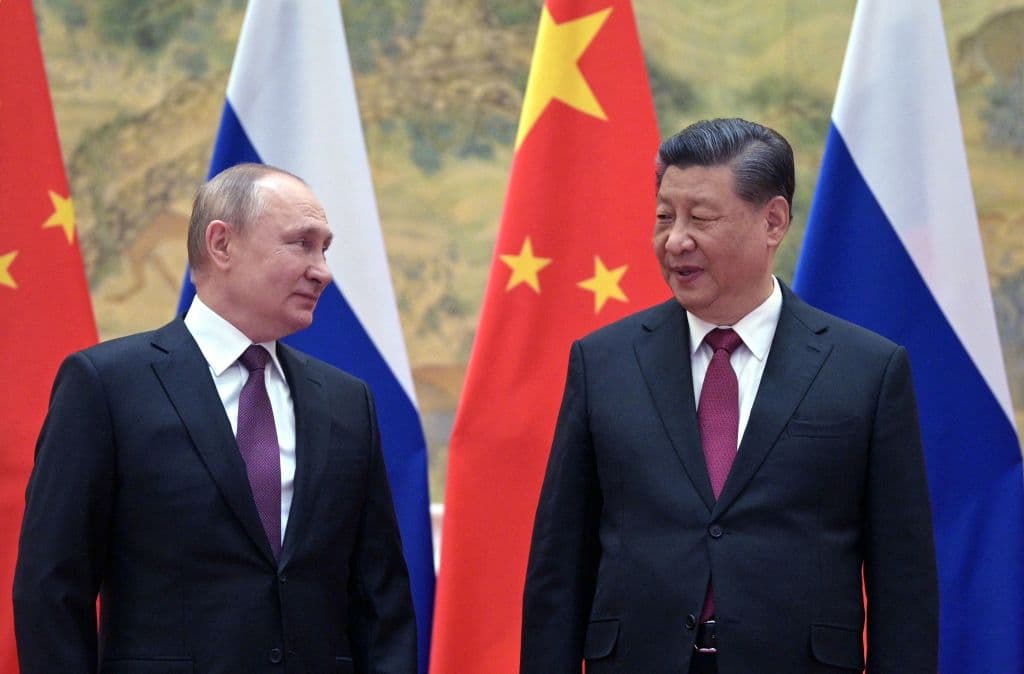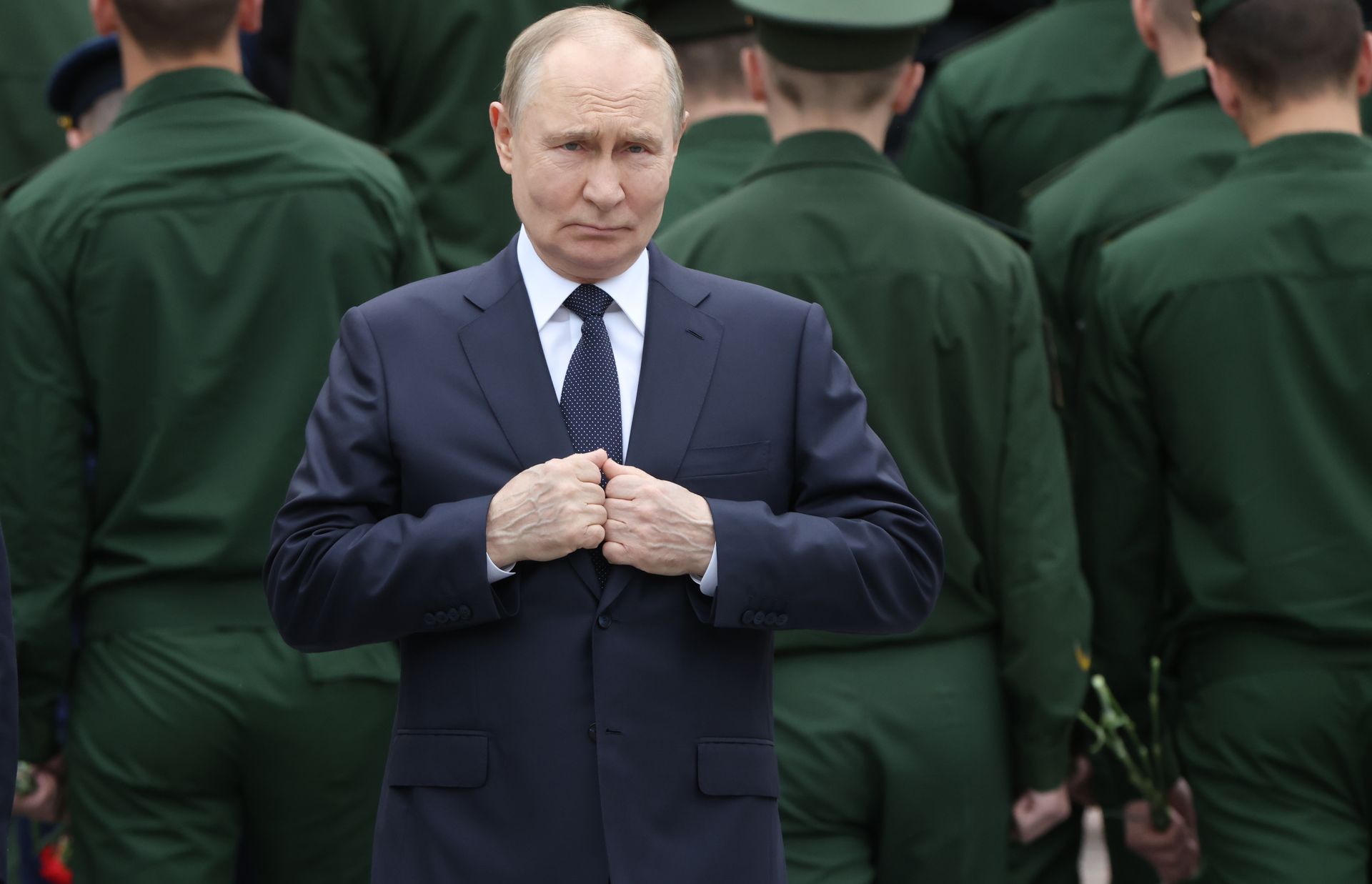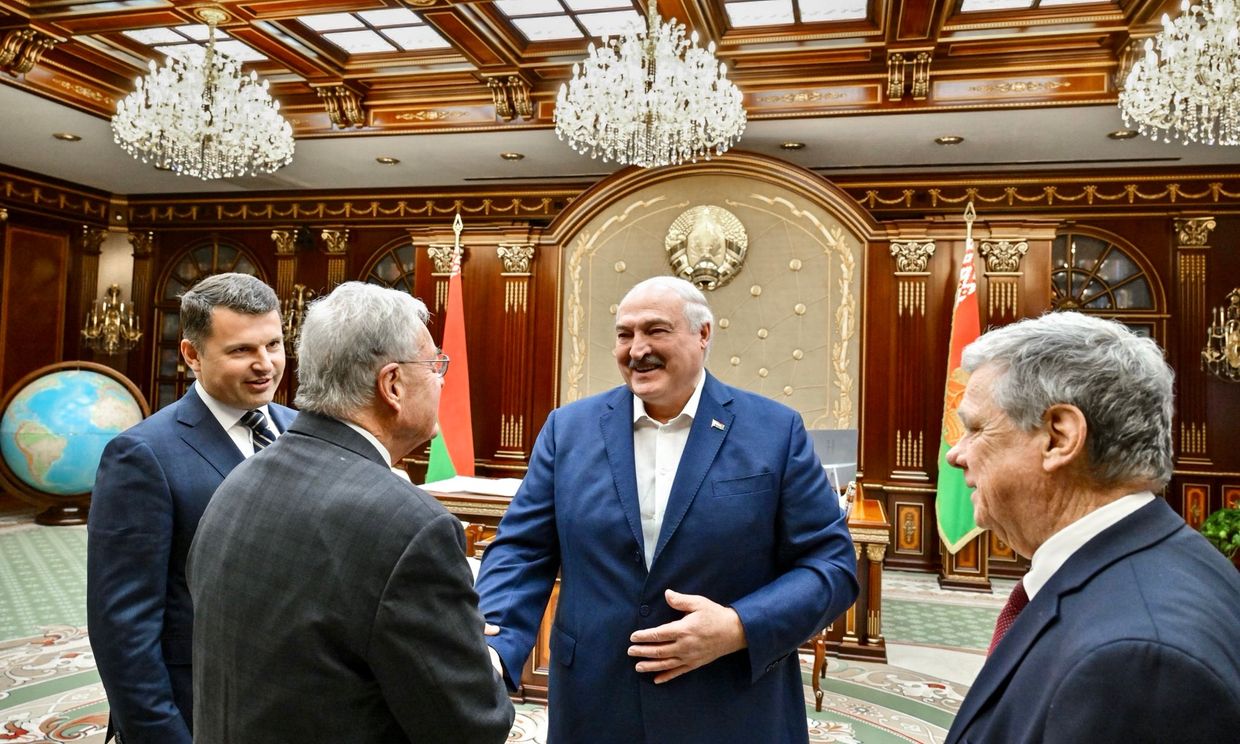When superpowers break the rules

Russia’s President Vladimir Putin (L) and China’s President Xi Jinping (R) pose for a photograph during their meeting in Beijing, China, on Feb. 4, 2022. (AFP via Getty Images)

Andreas Umland
Manifest expansionist ambitions of the three most powerful countries in the world — China, the United States, and Russia — are undermining the current world order.
Since its founding, the People's Republic has expressed interest in Taiwan; Beijing may now be on the verge of attempting to conquer the island. In 2025, U.S. President Donald Trump announced his intention to incorporate Canada and Greenland into the United States.
The most consequential development that has led to the erosion of the post-war order over the past eleven years, however, has been Russia — like China and the U.S. — a permanent member of the UN Security Council and a nuclear-weapon state under the Non-Proliferation Treaty (NPT).
Since 2014, Moscow has been engaged in demonstrative land grabbing and, since 2022, a full-scale expansionist invasion with signs of genocide on the internationally recognized territory of Ukraine.
As a Soviet republic, Ukraine was a founding member of the UN in 1945. Kyiv has been an official non-nuclear-weapon state under the NPT since 1996, when it gave up its chunk of the Soviet nuclear arsenal to the state it is now defending against.
Relatively weaker countries are learning from Ukraine's experience that one cannot rely on international law, organizations, and solidarity. One should not make the mistake, as Kyiv did, of trusting in "security assurances" or "guarantees," "friendship treaties," "strategic partnerships," and the like — even if they are provided by the world's most powerful states.
Such agreements are of little significance, as demonstrated by the irrelevance of Ukraine's respective agreements with Russia (1994 Budapest Memorandum on Security Assurances, 1997 Friendship Treaty), China (2013 Friendship Treaty), and the United States (2008 Strategic Partnership).

Can the small ones balance out the big ones?
The standard solution to the security dilemma of smaller powers is to join defense alliances, ideally ones that include at least one nuclear-weapon state. But as Tbilisi and Kyiv, among others, have learned the hard way, gaining full membership in a powerful defense alliance is neither easy nor risk-free.
In response to Georgia and Ukraine's applications for NATO membership in April 2008, the alliance told them that they "will become members." Instead, Georgia has been dismembered by Russia since 2008 and Ukraine since February 2014.
(Although one should also mention that Moldova, a post-Soviet republic with no ambitions to join NATO, has seen parts of its territory occupied by Russia for more than 30 years, too. In contrast, when Finland, which has a long border with Russia, applied for NATO membership in 2022, Moscow did not invade it, but instead withdrew troops from the Finnish-Russian border. A former Russian colony's wish for NATO membership is thus neither a necessary nor a sufficient condition for a dismemberment by Russia.)
Today's transformation of the world order may seem unproblematic from the perspective of Beijing, Washington, and Moscow. However, it is likely to cause concern among non-nuclear-weapon states with little international integration.
Countries that have potentially revisionist neighbors and operate outside NATO or other relevant defense alliances must now rethink their national security strategies. The leaders of China, the U.S., and Russia can ignore, dismiss, or take seriously the new fears of third countries in reaction to their expansionist ambitions. If they do not act to counteract such worries, a backlash is only a matter of time.

One reaction of relatively weaker countries to the possible end of the postwar rules-based order could be to acquire weapons of mass destruction for deterrence and defense purposes. Such decisions by some states could, in turn, trigger similar steps by their neighbors, who distrust the exclusively defensive motives behind an accumulation of weapons of mass destruction on their borders.
This could trigger regional arms races and a domino-like proliferation of weapons of mass destruction. The influx of nuclear, chemical, and biological weapons into state arsenals, in turn, increases the likelihood that such weapons will also fall into the hands of non-state actors.
The seriousness of such a subversion of future international security should not lead to its dismissal as an unlikely doomsday scenario. Russia's expansionism since 2014 and the recent escalation in the foreign rhetoric of China and the United States represent a turning point in world politics.
For observers from countries that possess weapons of mass destruction and/or are full members of alliances possessing such weapons, these may be regrettable but secondary phenomena.
For states that have neither, Russia's expansion and genocide on the territory of Ukraine, as well as the ambivalent response of other major powers to Moscow's escalation, cannot simply be ignored.
If Russia were to achieve a military victory or impose an unjust Siegfrieden (victorious peace) on Ukraine, the concerns of other non-nuclear-weapon states outside powerful defense alliances will increase further.
Editor's Note: The opinions expressed in the op-ed section are those of the authors and do not purport to reflect the views of the Kyiv Independent.











